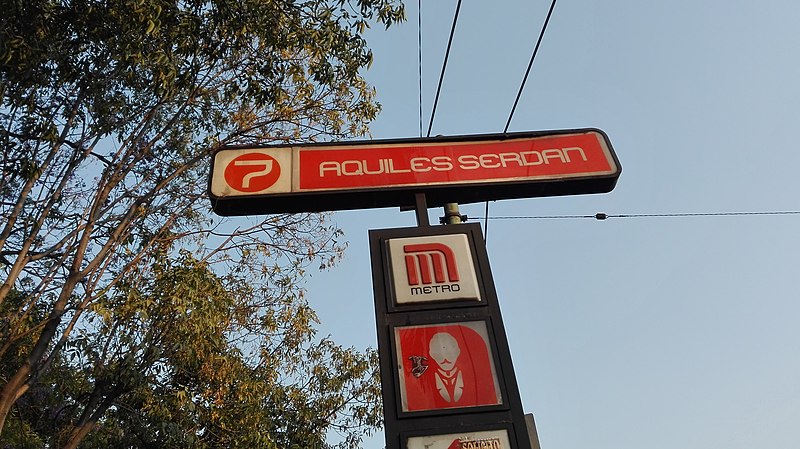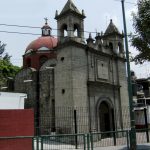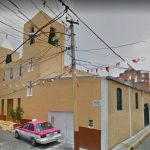

La estación Metro Aquiles Serdán es la primera de las realmente profundas estaciones de la Línea 7. Situada en el noroeste de la ciudad, los visitantes son atraídos a ella por su sublime belleza. Dos ventanales de rosetón al nivel de la calle delimitan unas escaleras gemelas en espiral que conducen a los pasajeros hacia abajo, muy abajo.
Las fotos que han captado los peldaños y el robusto perfil de las escaleras evocan una representación poco común. En promedio diario, la cantidad de pasajeros que la transitan es de unos 14,000; así que no es una de las estaciones del metro más concurridas. Lo cual posibilita disfrutarla.
Su nombre se debe al de la avenida que queda en su superficie, la que a su vez lo lleva en honor a Aquiles Serdán, un héroe de la Revolución mexicana. Nacido y muerto en la ciudad de Puebla, fue uno de los primeros seguidores de Francisco I. Madero. En respuesta al llamado de éste a la insurrección contra la dictadura porfirista, Serdán reunió en su casa un arsenal que fue descubierto por la policía; entonces don Aquiles y parte de su familia fueron asesinados en un desigual combate contra las fuerzas porfiristas. El logotipo de la estación representa el busto estilizado de este personaje.
Para los turistas extranjeros, la estación de Metro Aquiles Serdán ofrece una espectacular oportunidad de fotografiar un interior exótico. Ya en la superficie, el Metro Tezozómoc, de la Línea 6, se alcanza tras una breve caminata. Allí convergen las líneas 6 y 7 dando la posibilidad de continuar el trayecto hasta el Metro El Rosario. Pero si se va en la dirección opuesta, se llega a San Juan Tlihuaca, uno de los pueblos originarios de Azcapotzalco. Este tiene como centro la histórica iglesia de San Juan Bautista. La estación Metro Aquiles Serdán da gran servicio a los vecinos de las colonias Tezozómoc, Pasteros y de otra que tiene un nombre estupendo, La Preciosa. Estas colonias quedan al sur de la estación.
 unidad_de_orientacion@metro.cdmx.gob.mx
unidad_de_orientacion@metro.cdmx.gob.mx
 5627.4950/5627.4741
5627.4950/5627.4741
 https://www.metro.cdmx.gob.mx/
https://www.metro.cdmx.gob.mx/

Cercano a 0.49 kms.

Cercano a 0.57 kms.

Cercano a 0.62 kms.

El Rosario es la última estación en las líneas de metro 6 y 7, y la única estación a nivel de superficie de las dos líneas.

Metro Camarones no es solo una de las estaciones más fotografiadas, sino una de las mejor diseñadas y más profundas.

Una puerta de entrada al Parque Bicentenario y un ángulo interesante sobre el posindustrialismo y el socialismo de mediados de siglo.

Aún hoy, una de las estaciones más famosas de todo el Sistema Metro, no vayas si no sabes que buscar.

San Joaquín puede llevar el nombre de una carretera, pero decenas de barrios cercanos recuerdan un río.